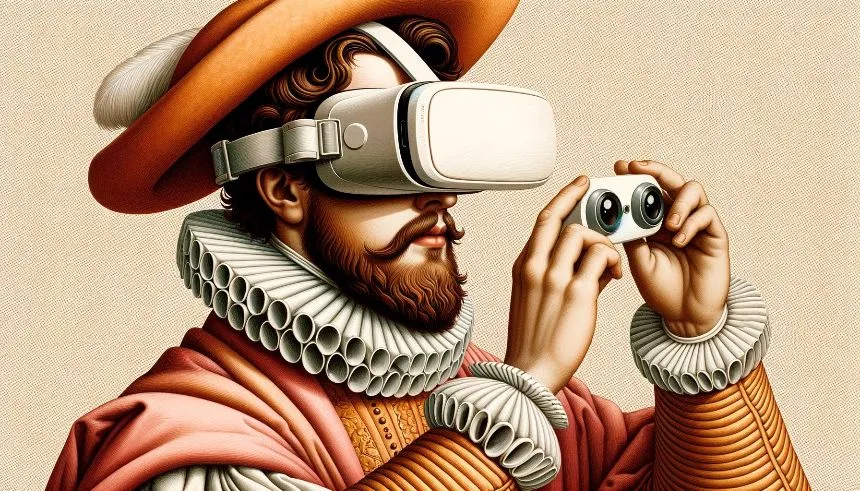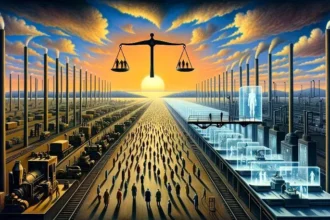Gaiming transcend mere entertainment. As immersive worlds, they serve as mirrors reflecting societal concerns and political narratives. Just as novels and films have done for centuries, video games are emerging as platforms for political expression. In them, players encounter not just fantastical adventures, but pressing issues, dilemmas, and societal commentary. Politics, it seems, has found a new playground in the pixelated landscapes of our favorite games.
Art has always been political. From the earliest cave paintings to Shakespeare’s plays, the intent was clear – to communicate, to question, and to provoke. Today, video games follow this tradition. They offer players a chance to step into others’ shoes, to see the world from different perspectives, and to grapple with complex moral decisions. Some might argue that this digital medium holds more power than any other, due to its interactive nature.
Yet, there are critics. Some argue that games should remain escapist outlets, free from the burdens of real-world issues. But can they be? In a world where boundaries between reality and digital blur, can games remain neutral? Or are they, by their very nature, destined to be political platforms?
With this backdrop, let us delve deeper. Through this lens, we’ll explore how video games tackle political themes, the implications for players and society, and the broader debate about their role in shaping discourse.
The Politics Within Gaming Narratives
Video games have often incorporated political undertones. From the sprawling cities in “SimCity” to the post-apocalyptic worlds of “Fallout“, these narratives prompt players to make decisions based on certain societal frameworks. Such decisions aren’t mere gameplay mechanics; they reflect larger philosophical and political debates.
For society at large, video games as political commentary can serve as powerful tools for empathy.
Consider “Papers, Please”. It places players in the role of a border control agent in a fictitious dystopian country. The game isn’t just about checking passports. It’s about ethical dilemmas. Do you let a refugee in, knowing they might be lying, or do you deny them and potentially seal their fate?
Similarly, “This War of Mine” does not follow soldiers. It tracks civilians in a war-torn city. Players must decide between feeding a child or saving medicine for a sick friend. Here, the horrors of war get personalized, highlighting the real human cost of political conflicts.
These games and many others delve into topics like immigration, war consequences, and societal responsibility. By doing so, they force players to confront and question their own beliefs, biases, and moral compasses.
However, it’s not just about narratives. The industry itself has faced political scrutiny. Issues like representation, diversity, and labor rights within the gaming industry have spurred debates globally.
Thus, whether overtly or subtly, politics permeates the video game sphere, both in content and creation. As we move forward, it’s crucial to understand this interplay, its potential impacts, and what it reveals about our evolving societal discourse.
Implications for Players and Society
The blending of video games and politics has profound implications. For players, it’s not just about navigating virtual worlds; it’s about navigating moral and ethical terrains. Games like “Deus Ex” delve into themes of surveillance, control, and corporate power. In making choices, players implicitly confront their beliefs about these real-world issues.
Politics in games can reinforce biases if not approached critically.
For society at large, video games as political commentary can serve as powerful tools for empathy. Consider the plight of a refugee. While news stories might inform us, a game like “Bury Me, My Love” allows players to experience a Syrian refugee’s harrowing journey. This experiential understanding might foster deeper compassion and nuanced discussions.
But there are risks. Politics in games can reinforce biases if not approached critically. A game that portrays a particular group as enemies, without context or nuance, can perpetuate stereotypes. It’s essential to differentiate between games that use politics for nuanced discussion and those that might use it for sensationalism.
Furthermore, the rise of multiplayer online games introduces new challenges. Here, players from diverse backgrounds converge. While this offers rich intercultural interactions, it also becomes a space for political clashes. Online harassment, “trolling”, and political radicalization are real concerns in these spaces.
In conclusion, as video games become more entwined with politics, the onus is on developers, players, and society to approach them responsibly. Whether we see them as mere entertainment or powerful political tools, their influence on modern discourse is undeniable.
The Role of Games in Shaping Discourse
Modern video games are more than pastimes. They’re platforms shaping political discourse. When a game touches on climate change or social justice, it becomes part of a larger conversation, influencing perceptions.
For instance, games can generate awareness. Environmental issues highlighted in “Subnautica” or “The Long Dark” introduce players to the implications of ecological neglect in compelling ways. They don’t just tell, they show, making abstract issues tangible.
As we embrace this new era of digital-political convergence, the potential for video games to shape, influence, and enhance our societal discourse remains vast and promising.
Furthermore, with the rise of streaming platforms like Twitch, games reach vast audiences. A politically charged game doesn’t influence just the player but also thousands watching online. This multiplies the discourse, spurring wider debates and discussions.
However, the responsibility is vast. Game developers wield influence. Thus, it’s essential they approach political topics with care, ensuring they foster understanding rather than division.
Video games, as with all media, reflect and shape our society. Recognizing their role in political discourse is crucial as we navigate the interconnected digital age.
The Power of Pixels in Political Paradigms
The realm of video games has evolved beyond simple amusement. Their narratives, choices, and community interactions have become deeply interwoven with political and societal debates. These digital landscapes offer profound insights into our collective consciousness, revealing our concerns, hopes, and biases.
They challenge players to think critically, fostering empathy and nuanced perspectives. Yet, with this power comes responsibility. Developers, players, and stakeholders must tread carefully, ensuring that these platforms enlighten rather than mislead. As we embrace this new era of digital-political convergence, the potential for video games to shape, influence, and enhance our societal discourse remains vast and promising.








